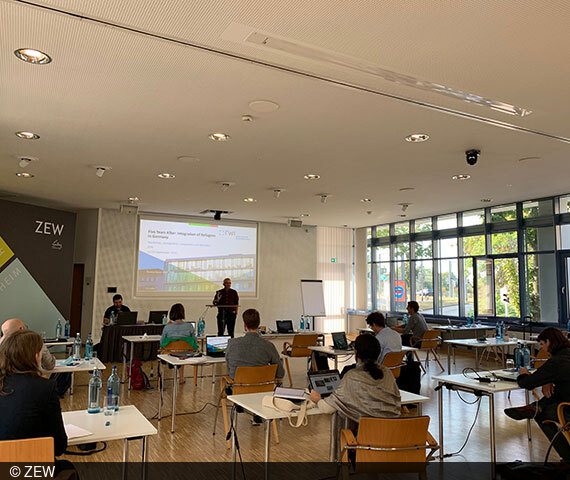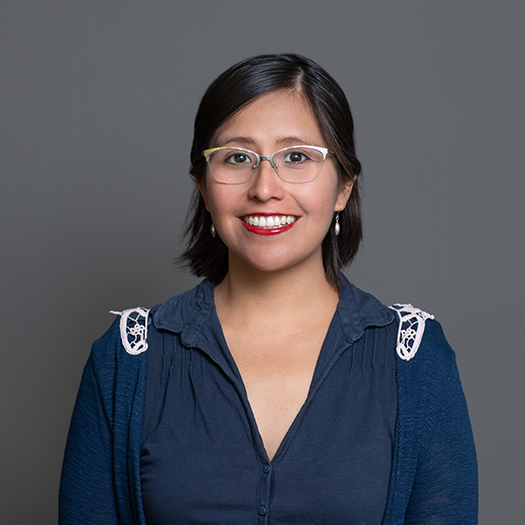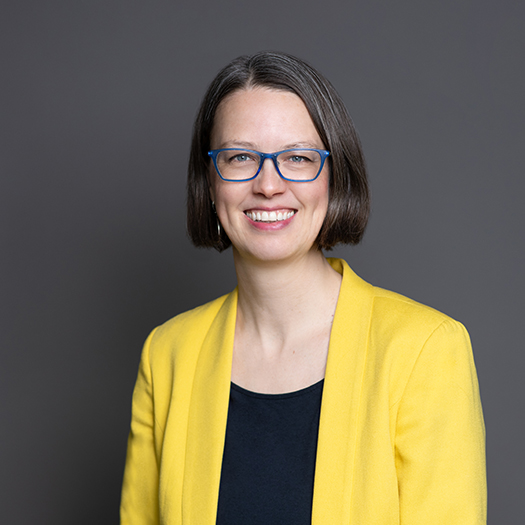Workshop on the Integration of Immigrants and Attitudes Towards Migration Issues
EventsFive Years After “We Can Do It!”
Five years ago, Angela Merkel coined the now famous phrase “Wir schaffen das” (“We can do it”) in the midst of a crisis situation, as more and more migrants made their journey to Europe on the Balkan route. But what can the countries that take in immigrants do to integrate them? What consequences can be expected from accepting and integrating immigrants with regard to the attitudes towards migration issues in these countries? These and other questions were discussed at the international workshop “Immigration, Integration and Attitudes” that took place on 22 and 23 September 2020 at ZEW Mannheim.
The workshop was organised by the ZEW Junior Research Group “Integration of Migrants and Attitudes Towards the Welfare State” (IMES) in close cooperation with the Mannheim Centre for European Social Research (MZES) of the University of Mannheim and received funding by the Federal Ministry of Labour and Social Affairs as part of its interdisciplinary research network on social policies (FIS). This was the first ZEW workshop since the outbreak of the coronavirus pandemic that was held in a hybrid format, i.e. both at ZEW and via an online video conference.
The Development of Migration Policy Has Contributed to a Successful Integration
In the first keynote speech, Thomas Bauer, vice president of RWI Essen and professor for empirical economic research at Ruhr University Bochum, provided insights into the time of the so-called ‘refugee crisis’, when he served as chair of the Expert Council of German Foundations on Integration and Migration. Pointing out several legislative changes, he traced the development of German migration policy and explained how this contributed to a successful integration of refugees. According to Bauer, there are sharp regional differences in the distribution of refugees, for instance when it comes to reimbursing the costs for integration measures incurred by municipalities. This, in turn, has consequences for the attitudes of the local population. These refugees – a cohort with a disproportionate share of relatively young and male individuals – have seen faster integration into the labour market than other cohorts. In this context, Bauer also pointed to the risks that are associated, on the one hand, with the long period of uncertainty that refugees face when they arrive in Germany, and on the other hand with the coronavirus pandemic, which is likely to hit refugees in the labour market particularly hard.
Naturalisation of Refugees as a Positive Sign
Dominik Hangartner, professor for public policy and co-director of the Immigration Policy Lab of ETH Zurich, explained in the second keynote speech how naturalisation can accelerate the integration of immigrants and how policymakers can take an active role in this process. This topic is highly relevant for Germany, as the number of refugees that fulfil the requirements for naturalisation will rise significantly from 2021 onwards. Analyses conducted for Switzerland show that becoming a naturalised citizen or acquiring citizenship decreases labour market discrimination by up to 50 per cent – at least for those who have been living in the country for six to ten years and have the required income. In addition, naturalisation has a significant positive effect on the long-term income of immigrants, which benefits those at the bottom of the income distribution in particular. Finally, he also shed light on low-cost information campaigns that have contributed to an increase in applications and naturalisations. Besides economic benefits, this would most likely also have positive effects on the immigrants’ identification with the host country and their democratic participation.
Broad Range of Topics for Active Scientific Exchange
Apart from these two keynote speeches, the workshop also featured 16 scientific contributions from the fields of economics, sociology and political science. The topics ranged from integration measures like language lessons and cash transfer programmes and the different dimensions of (labour market) integration to the political consequences for attitudes and election behaviour. In addition to taking part in the scientific programme, the participants also had the opportunity to engage in informal exchange in virtual coffee breaks in randomly assigned groups. This format, which was very well received by the researchers, complements the more traditional opportunities for scientific exchange.


